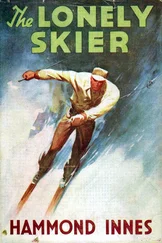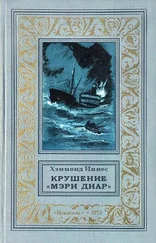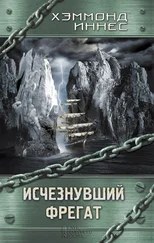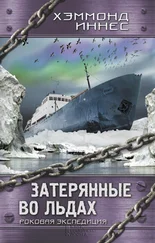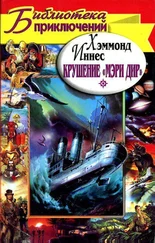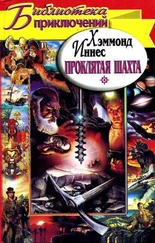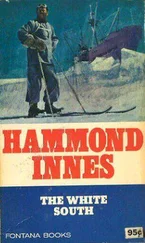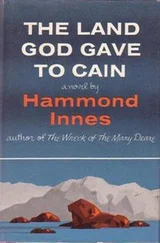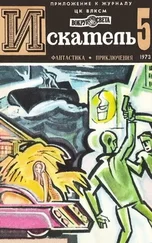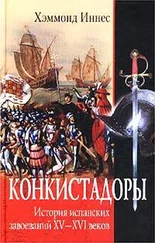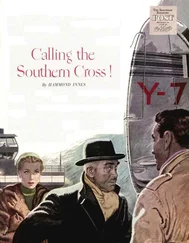Хэммонд Иннес - Nothing to Lose [= Campbell’s Kingdom]
Здесь есть возможность читать онлайн «Хэммонд Иннес - Nothing to Lose [= Campbell’s Kingdom]» весь текст электронной книги совершенно бесплатно (целиком полную версию без сокращений). В некоторых случаях можно слушать аудио, скачать через торрент в формате fb2 и присутствует краткое содержание. Город: Philadelphia, Год выпуска: 1952, Издательство: The Curtis Publishing, Жанр: Триллер, Прочие приключения, на английском языке. Описание произведения, (предисловие) а так же отзывы посетителей доступны на портале библиотеки ЛибКат.
- Название:Nothing to Lose [= Campbell’s Kingdom]
- Автор:
- Издательство:The Curtis Publishing
- Жанр:
- Год:1952
- Город:Philadelphia
- ISBN:нет данных
- Рейтинг книги:3 / 5. Голосов: 1
-
Избранное:Добавить в избранное
- Отзывы:
-
Ваша оценка:
- 60
- 1
- 2
- 3
- 4
- 5
Nothing to Lose [= Campbell’s Kingdom]: краткое содержание, описание и аннотация
Предлагаем к чтению аннотацию, описание, краткое содержание или предисловие (зависит от того, что написал сам автор книги «Nothing to Lose [= Campbell’s Kingdom]»). Если вы не нашли необходимую информацию о книге — напишите в комментариях, мы постараемся отыскать её.
Nothing to Lose [= Campbell’s Kingdom] — читать онлайн бесплатно полную книгу (весь текст) целиком
Ниже представлен текст книги, разбитый по страницам. Система сохранения места последней прочитанной страницы, позволяет с удобством читать онлайн бесплатно книгу «Nothing to Lose [= Campbell’s Kingdom]», без необходимости каждый раз заново искать на чём Вы остановились. Поставьте закладку, и сможете в любой момент перейти на страницу, на которой закончили чтение.
Интервал:
Закладка:
It was an odd journey, alone there, slung in space in the moon-filled night. The rock jumble of the slide fell away steeply below me, a checkerboard of black and white. But ahead all was deep in shadow. A great concrete pillar moved toward me and slid past in the night, a vague shape as the cage ran from moonlight into shadow. For a moment the sound of the cradle wheels changed as they ran on the solid fixing of the cable. Then the whole cradle began to tilt sharply and the rate of progress slowed as it began to climb the vertical cliff face. Looking back, the moon-white valley seemed miles away. I could barely see the tiny square block of the engine housing. I seemed hung in space, like a balloonist caught in an updraft of air and slowly rising.
It could have been only a few minutes, but it seemed an age that the cage was climbing the bare rock face of the fault. Then we lipped the top end I was in moonlight again and the world around was visible and white. The concrete pylon passed me so close I could have touched it. The cradle toppled down to an almost horizontal position. Ahead of me now I could see the dam, a gigantic concrete wall, unfinished at the top and crumbling away in the center where the stream ran through. The cage climbed the northern slope of the cleft until I was looking down onto the top of the dam. Then it slowed and moved gently into a wooden staging that finished abruptly at a concrete housing similar to the one at the bottom. The cage stopped with a slight jerk that set the cables swaying.
I climbed stiffly out and looked about me. The dam was below me, looking like some prehistoric rampart built by ancient inhabitants to defend the pass. The unfinished center section, where the water frothed white over a small fall, gave it the appearance of having been breached in some early raid.
All this I saw at a glance and then my gaze swung to the Kingdom itself. It was a natural bowl in the mountains some five to ten miles long; I couldn’t tell the width because a buttress of rock, part of the shoulder of the mountain, blocked my view. The place was completely bare, a white expanse of snow through which ran the black thread of the stream, branching here and there into tributaries that faded rapidly beneath the snow. There was no sign of habitation.
I went into the concrete housing. It contained nothing but the big iron wheel round which the driving cable ran, and some cans of grease. There was a field telephone on a wooden bracket. I lifted the receiver and wound the handle.
Faint in my ear came the sound of Jeff’s voice, “You all right, Bruce?”
“Yes, I’m fine.” It was odd to think of him still down there in the valley with the car outside and the road snaking back to Come Lucky. I seemed to have moved into another world. “I can’t see Campbell’s shack from hero,” I told him. “It’s probably on the north side of the Kingdom, and that’s hidden from me by a buttress of rock. I’ll ring you when I’m ready to come down.”
“Okay. But don’t be too long.”
I hung up and went outside. I stood there for a moment, gazing beyond the buttress to the Kingdom. It was a crystal bowl surrounded by peaks, and it wasn’t difficult to imagine how my grandfather had felt when he had first seen it. Spring would come late here, but when it came it would be splendid and solitary. The light died out of the whiteness of the plateau until it was no more than a distant glimmer. The clouds were thickening up. I turned and climbed the rock-strewn slope to the buttress.
It didn’t take me long to reach it, and from the summit the whole Kingdom lay before me. And there, huddled against the lower slopes of the mountain away to my left, was a low range of buildings half buried in snow.
It shouldn’t have taken me long to reach them, for it was not more than a mile, but the going was very slippery, the snow frozen into a hard crust. But I was making fair progress when all hell broke loose. There was a steady roaring on the mountain slopes above me. The wind came with a drift of powdery snow whipped up from frozen ground, and behind the wind came snow, heavy, driving flakes that were cold and clinging, that blinded my eyes and blanketed the whole world that only a moment before had been so bright and clear in the moonlight.
There was no question now of fighting my way back to the top of the hoist. I knew the direction in which the homestead lay and I made for it, head down against the blinding fury of the blizzard, cursing myself for a fool, for not realizing how quickly the mood of mountains can change.
After a struggle that seemed endless, I found myself in the shelter of a group of buildings — low, log-built barns stretching out like two arms from a central ranch house that had doors and windows. I felt my way along the log face until I found the door. It yielded to my touch and I stumbled inside, closing it after me.
The place was cold, cold with the gripping chill of a room that has had no heat in it for a long time. I fumbled for my lighter and in the tiny flame of it I saw a big, ghostly room full of shadows. The walls were of log, the ceiling and floorboards of split pine planks, and there was the gaping hole of a huge stone chimney. On a table stood a lamp. It still had oil in it and I removed the glass chimney and lit the wick. When I set the chimney back the warm lamplight flooded the place. I stood back and stared at a room that might have been constructed by one of the pioneers that had moved into the Fraser River country a hundred years ago.
The place was dominated by the huge stone chimney which broadened out just below the rafters to a big open fireplace. The grate still held some half-burnt pine logs and a great heap of ash. The beams and rafters that supported the roof were rough-hewn, the marks of my grandfather’s ax plainly visible. Most of the furniture was handmade, but there were a few small pieces that had been imported. A door to the right led into a kitchen. On the other side of the living room was a bedroom. The bed was unmade. Clothes were strewn around — heavy ski hoots, an old pair of jeans, a buckskin jacket beautifully worked with beads, an old and battered hat.
I felt as though I were an intruder in a private house, not the sole legatee of a man four months dead come to look over his property. The place was cold, it was true, but it wasn’t dump. He’d built it well on a good rock foundation and with a double lining of timbers, packed with sawdust and straw, and double windows. It was a living part of Stuart Campbell. Everything I was looking at had been made by him at great cost of labor and ingenuity. I gated slowly round the room with a strange feeling of tenderness for the man who had made it. This was the place that they wanted to drown with their dam.
A pool of water was forming at my feet. There were logs piled in a big bin beside the fireplace, logs brought in by Johnny and his party when they had returned. There was a box of ax chippings and sawdust. In a few minutes I had a fire blazing in the hearth and had stripped off my clothes. I went through into the bedroom and got some things of my grandfather’s — a pair of jeans, a plaid shirt and a big fur-lined jacket.
I lit a cigarette and went over to the desk. It was in the bottom drawer that I found what I was looking for — rolled sheets of cartographic paper and a black leather-bound book. The seismograms were quite incomprehensible to me. I rolled them up and put them back in the drawer. Then I opened the book.
This was what I had hoped to find. On the first page was written: An Account of the Efforts of one Stuart Campbell to Establish the Truth that there is Oil in the Rocky Mountains. The report was written in ink. All the entries were dated beginning with March 3, 1911 and going straight through to the entry made on the day of his death.
Читать дальшеИнтервал:
Закладка:
Похожие книги на «Nothing to Lose [= Campbell’s Kingdom]»
Представляем Вашему вниманию похожие книги на «Nothing to Lose [= Campbell’s Kingdom]» списком для выбора. Мы отобрали схожую по названию и смыслу литературу в надежде предоставить читателям больше вариантов отыскать новые, интересные, ещё непрочитанные произведения.
Обсуждение, отзывы о книге «Nothing to Lose [= Campbell’s Kingdom]» и просто собственные мнения читателей. Оставьте ваши комментарии, напишите, что Вы думаете о произведении, его смысле или главных героях. Укажите что конкретно понравилось, а что нет, и почему Вы так считаете.

